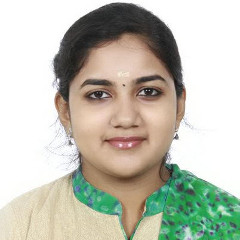Time we took on poverty head on, lest we pay dearly

Mail This Article
"Poverty is not just a lack of money, it is not having the capability to realise one's full potential as a human being."- Amartya Sen
Poverty is the greatest challenge faced by developing and under-developed nations. It is a phenomenon in which a section of people cannot fulfill their basic necessities in life. Across 101 countries, 1.3 billion people are multidimensionally poor and half of them are under age 18, states the Global Multidimensional Poverty Index 2019.
Yes, poverty is multidimensional and it cannot be measured based on family's annual income -- various other factors need to be taken into account. Sustainable Development Goal- 1, which is part of the larger United Nations Millennium Development Goals, aims to end poverty in all its forms and dimensions. Multidimensional Poverty Index (MPI) is one effective tool for measuring progress against SDG-1. It helps us to analyse how much percentage of the population are actually poor and what are the root causes of poverty in every country.
The Global MPI was developed by Oxford Poverty and Human Development Initiative in 2010. It measures poverty under three dimensions - Health (Nutrition, Child Mortality), Education (Years of Schooling, School Attendance) and Standard of living (cooking fuel, sanitation, drinking water, electricity, housing, assets).
It is often observed that children are the most-affected victims of poverty. The 2019 index reflects that over 85 percent of multidimensionally poor children live in South Asia, where 22.7 percent of kids under age 5 experience intra-household inequality in deprivation in nutrition. This means that at least one child in the house is malnourished and at least one child in the same house is not! It shows the gender disparity and discrimination that still exists in our households.
How are inequality and poverty related? Those facing poverty are at the rock bottom in terms of development and it is inequality that hampers the fair distribution of attainments. The distribution of attainments and basic necessities needs to improve at the bottom level.
Among the countries in the global MPI, India has shown considerable improvement. In India, states like Jharkhand have reduced MPI from 74.9 percent to 46.5 percent. Some rural places have outgrown urban areas as in Madhya Pradesh and Bihar. This is a good indicator of poverty reduction. But, millions still remain disadvantaged and poor due to their social status and caste. Scheduled Castes and Tribes and young children remain the poorest among us.
As pointed out by former UN Secretary General Kofi Annan, "No social phenomenon is as comprehensive in its assault on human rights as poverty. It is not only the deprivation of material or economic resources, but also a violation of human dignity too. It is a grave violation of our inalienable fundamental rights - Right to Dignified Life, Right to Health, Right to Access to clean drinking water, Right to Food Security etc.
What can be done about this? The world in its entirety is facing severe climate changes and radical changes in approaches of governments. If poverty is not tackled at least during this phase, most of the nations will witness terrible economic breakdowns. India should aim to establish social security systems, encourage progressive taxation favouring redistribution, ensure education for all citizens in practice, food security, increase job opportunities and also keep a monitoring system to analyse the progress and failures. Land reforms that particularly aims at land assignment should be brought forth.
Let us not forget what Nelson Mandela had observed: "Like slavery and apartheid, poverty is also not natural. It is man made and it can be eradicated by actions of human beings."
(The opinions expressed are personal)


